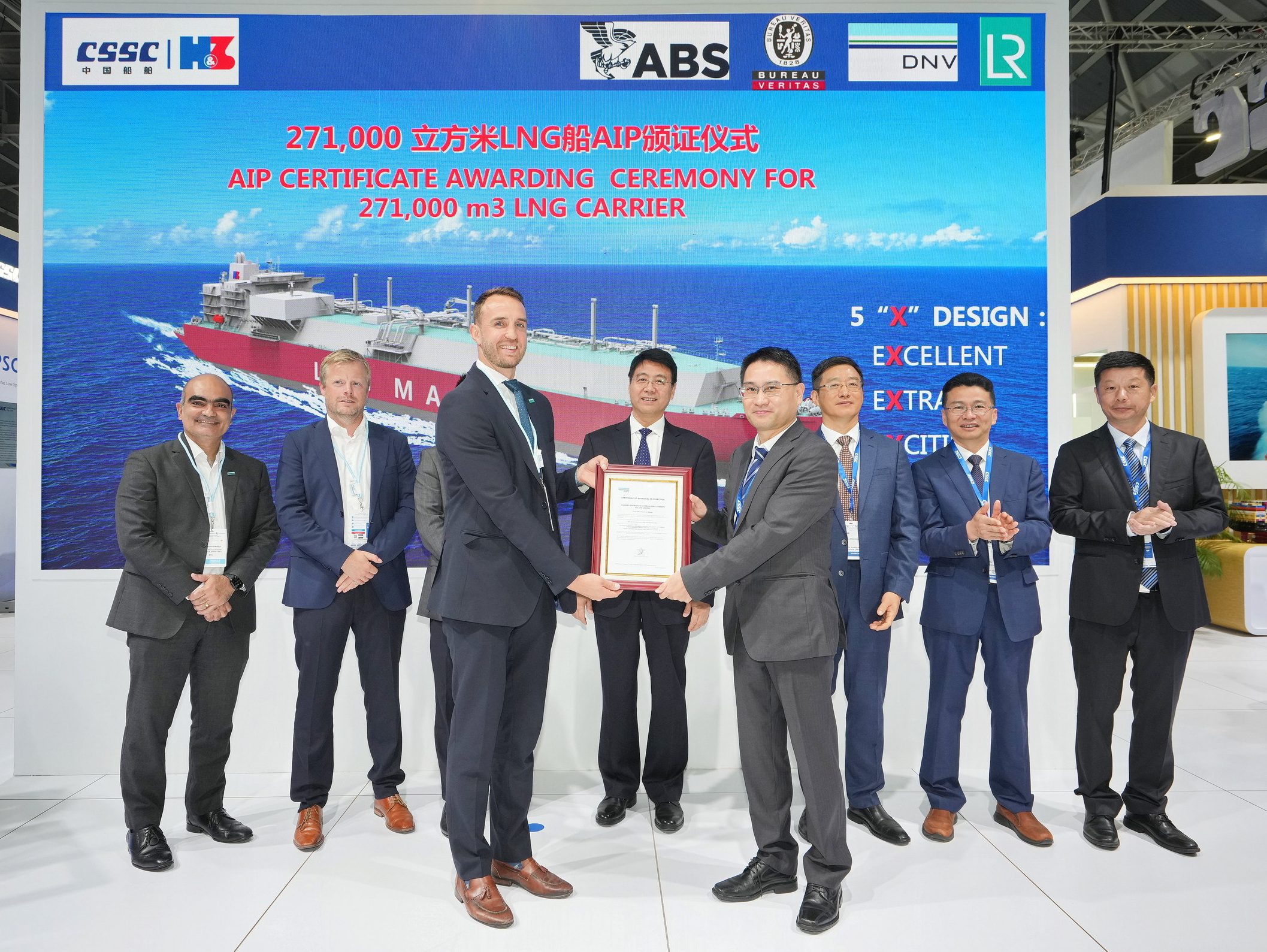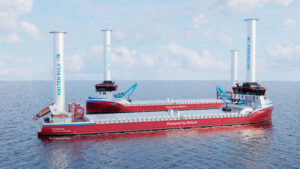The world’s largest liquefied natural gas carrier (LNG), with a capacity of 271,000 cubic meters, received approval in principle (AiP) from major leaders in providing classification services.
The American Bureau of Shipping (ABS), DNV and Lloyd’s Register (LR), issued an approval in principle (AIP) certificate to Hudong-Zhonghua (HZ) Shipyard for its new liquified natural gas (LNG) carrier design.
The new LNG carrier design is 344m long, has a breadth (moulded) of 53.6m and has five cargo tanks.
The design features flexible dual-fuel propulsion and an air lubrication system for more sustainable operations.
The synergy of a more efficient hull and the use of low-carbon fuel in the fuel-efficient engine is expected to translate to the lowering of the overall carbon footprint of the vessel, ABS said.
The design is also equipped with selective catalytic reduction (SCR) that should reduce its nitrogen oxide (NOx) emissions, which will help the vessel comply with IMO Tier III controls even when in diesel mode.
This newly designed LNG tank is equipped with an enhanced cargo containment system together with a real-time sloshing monitoring system, and the vessel is equipped with a hull stress monitoring and an anti-collision system, features not normally found on LNG carriers.
All of these measures are designed to improve the safety and reliability of the vessel, ABS added.
“As the world’s premier classification society for gas carriers, with more than 50 years of experience, we are proud to support this advanced new design from Hudong-Zhonghua. Vessels with larger capacities and modern, efficient propulsion systems will be integral to sustainably supporting future LNG needs around the world,” said John McDonald, ABS president and COO.
DNV’s Regional Manager Norbert Kray said, “LNG is an energy source that is becoming more important as we look to improve air quality and lower carbon emissions. DNV has been one of the leaders in maritime LNG technology for years, and I am delighted about our involvement in such an innovative project. With our global expertise and established Gas Carriers and Alternative Fuels expert team in China, we will continue to deepen our partnerships in China to help transition the maritime industry to become more sustainable and environmentally friendly.”



